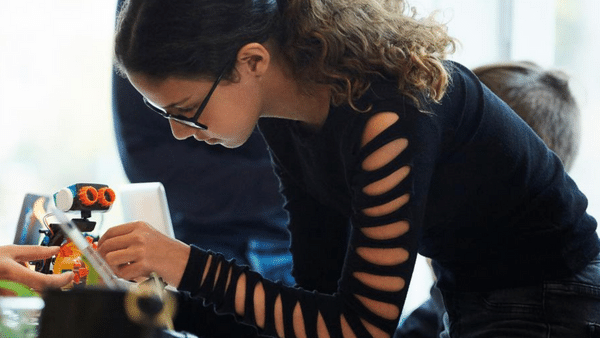I said I would report back on the Teachers’ TV debate last night. The gig was worth it even if only to see the magnificent Capital City Academy building and facilities in Willesden. Call me a liberal old softie, but I find it inspiring to see wonderful facilities like this serving a diverse working class community.
Following my piece in the Indie yesterday, which suggested Labour was unlikely to recover using traditional political means, I fear I will have been disowned by even the tiny group of friends I had left in the People’s Party. But by way of balance I should say that I am a firm believer that Labour’s combination of reform and investment has delivered real and lasting progress in public services.
Of course, there have been disasters, like the NHS IT system, but when the number of people waiting over 6 months for NHS treatment has fallen from several hundred thousand to zero, when survival rates from cancer and other major killers are rising impressively, when more children than ever before are leaving school with a reasonable level of qualification, when the number of abjectly failings schools has been reduced to a small fraction (each of which is having its problems aggressively addressed); then, in the light of the financial crisis, it is difficult not to conclude that the benefits of state action are proving more worthwhile than those of the free market. (And, more anecdotally, let me loudly proclaim on the basis of extensive personal research it is now much better to try to deal with a public sector than a private sector call centre!)
And so to the debate itself. Despite the skilled chairing of Krishnan Guru-Murthy and the learned contributions of three out of four of the other panellists, it was a night of false dichotomies: subject versus competence, knowledge versus skill, relevance versus insight. There was even someone in the audience from a campaign arguing that greater use of computers in schools would kill the book - this despite sales evidence showing the reverse, and the fact that the works being replaced by on-line information are largely text books and thus not likely to have appeared in the canon of world classics.
Another highpoint was the woman from the Campaign for Real Education attacking the Rose Review of the primary curriculum, but apparently doing so without being distracted by actually reading let alone understanding the review. Clearly another victim of trendy teaching methods!
Related articles
-
Design mentors: supporting innovation in young designers
Milla Nakkeeran
As we conduct our mentor visits for the 2022-23 Pupil Design Awards read why the role of design mentors is so vital to young innovators.
-
What are educators’ experiences supporting youth social action?
Hannah Breeze
We asked 2,000 primary educators to share their attitudes, motivations and the potential benefits of delivering youth social action in the classroom.
-
Youth social action and the experience of primary educators
Hannah Breeze
Contribute to our Third Benefit research to understand how involving primary school teachers in high-quality youth social action can inform benefits for them as well as pupils and communities.




Be the first to write a comment
Comments
Please login to post a comment or reply
Don't have an account? Click here to register.